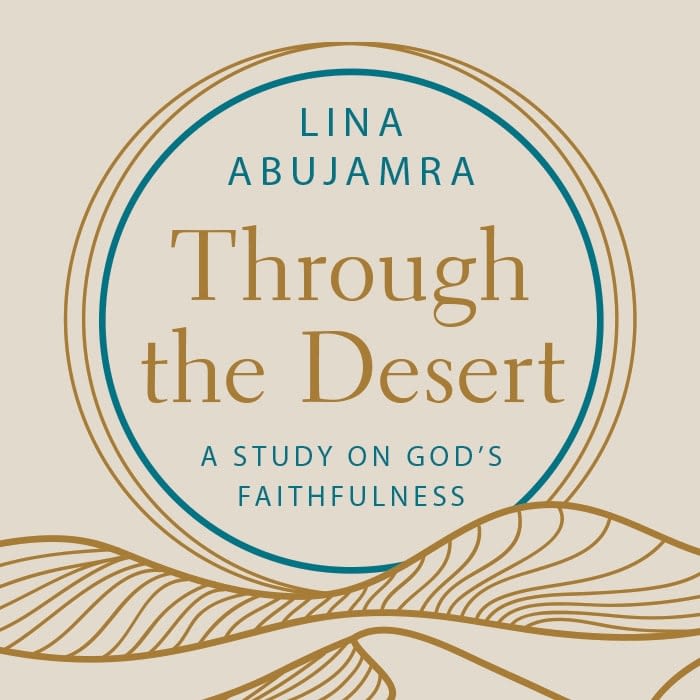It’s incredibly disorienting to realize that much of what you “knew” about your faith was wrong. This was my experience over fifteen years ago, and I still don’t feel as though I’ve completely landed on solid ground.
After growing up as the granddaughter of a pastor and the daughter of a church pianist, I thought I knew the Bible well. I was certainly around it enough. I started regularly attending church before I could walk—often going three times each week or more. I was also heavily involved in Sunday school, youth group, Awana, and Bible quizzing.
And yet, after I married my Catholic husband and started researching the differences between Catholic and Protestant beliefs, I realized how many of my core beliefs were built on faulty logic.
Beliefs that once felt so obvious and clear in Scripture suddenly didn’t make logical sense once I zoomed out from looking at individual verses taken out of context and began to study God’s Word as a whole.
I never converted to Catholicism—I don’t agree with all its beliefs either—but the process of questioning, researching, wrestling, and debating even the seemingly most obvious tenets of the Christian faith really showed me the importance of proper bibliology today.
You may not have heard the term “bibliology” before, but you’ve certainly heard of or been influenced by some of the popular Christian beliefs that fall within its scope.
Do you believe that we’re all sinners saved by grace, that the Bible contains “Basic Instructions Before Leaving Earth,” that you should “love the sinner; hate the sin,” or that Christians have a responsibility to share their faith with other people?
No matter which positions you hold, each of these beliefs (and their opposites) are formed as a result of your understanding of bibliology, or what you believe the Bible does or doesn’t say for believers today. And these are just a few examples of the many we could name!
What you believe about the Bible has a tremendous impact on what you believe about God, yourself, and others. It directly influences both your day-to-day decisions, the way you relate to everyone around you, and the way you understand and attempt to live out your life’s purpose.
In short, it affects every area of your life.
What Is Bibliology?
Bibliology is the formal study of the Bible as revelation. The term comes from the Greek words biblia (meaning books) and logos (meaning word or study), and it refers specifically to the theological understanding of Scripture.
One of the ten key domains of systematic theology, bibliology helps us answer questions such as:
- Is the Bible truly the Word of God?
- What does it mean that the Bible is inspired?
- Which books should (and shouldn’t) be included in Scripture?
- How was Scripture written and preserved?
- Does the Bible contain mistakes, errors, or discrepancies?
- What role should the Bible play in our lives?
- How should we understand and live out God’s words today?
Though the term may sound academic, the purpose of bibliology is deeply practical. It helps Christians understand why the Bible is central to faith and practice and why it remains the authority in matters of doctrine, morality, and spiritual guidance.
In short, it isn’t enough to simply learn how to read the Bible. We also need to correctly understand the purpose, message, trustworthiness, and intended application of Scripture.
What Does the Study of Bibliology Cover?
The study of bibliology covers several key doctrines that explain what the Bible is, how it came to be, and why it matters. These areas include:
- Authority: Since the Bible is the very Word of God, it serves as the ultimate standard for Christian belief and behavior.
- Canonicity: The process by which the church recognized which books were truly inspired by God and should be included in the Bible.
- Illumination: The work of the Holy Spirit in helping believers understand and apply the truths of Scripture in their lives.
- Inerrancy: The belief that the Bible’s original manuscripts are without error in all that they affirm, whether spiritual, historical, or moral.
- Inspiration: The divine process by which God guided the human authors of Scripture, ensuring that their writings were both fully their own and fully His Word.
- Interpretation: The principles and practices (such as context, genre, and intent) used to correctly understand and apply Scripture, particularly when the meaning could be unclear.
- Revelation: The way God makes Himself known to humanity, both through general means like nature and conscience and through special means such as Scripture and Jesus Christ.
Common Disagreements within Bibliology
While Christians generally agree that the Bible is central to the faith, there are several areas within bibliology where even the smartest and most devout biblical scholars and lay people disagree. For example, Christians commonly disagree over issues such as:
- The Canonicity of Scripture: Protestant Christian Bibles include sixty-six books that Protestants believe are divinely inspired sacred Scripture. Roman Catholic Bibles contain seventy-three books. The Orthodox church, on the other hand, doesn’t have an official canon (or list of scriptural books). According to BibleGateway.com, Orthodox Bibles may contain as many as eighty-one books!
- The Sufficiency of Scripture: While some Protestant Christians believe the Bible contains all the teachings necessary for salvation and living a godly life and that no additional revelations or sources are needed, Catholic and Orthodox Christians believe that the Bible’s teachings must be understood within the context of (or alongside) official Church Tradition, teaching, and history.
- The Clarity of Scripture: While some Christians believe that the essential teachings of the Bible are clear and easily accessible to all believers, others believe Scripture must be studied alongside other sources to be properly understood and applied.
- The Ongoing Revelation of Scripture: While some Christians believe that God has already given us everything we need to know through the closed canon of Scripture, others believe that God continues to speak to us today through personal prophecies, visions, dreams, signs, and ongoing messages from the Holy Spirit.
- The Translation of Scripture: While some Christians prefer a Bible translation that’s as literal as possible, others prefer a translation that’s easier to read, understand, and apply. A small group of Christians believes the King James Version is the only valid or inspired English translation of the Bible.
Thankfully, these disagreements don’t necessarily divide Christians from one another spiritually. Many Christians simply agree to disagree on secondary or minor issues that aren’t likely to affect one’s salvation.
Why Is Bibliology Important for Christians Today?
As busy women, it can seem impossible to set aside time to study the various branches of systematic theology. How can we set aside time for ecclesiology or Christology when we have so many more immediately pressing things competing for our limited attention?
Yet our beliefs about the Bible quietly shape so many of our daily decisions. From how we respond to stress to the values we teach those under our influence to the way we approach prayer, church, and parenting—our view of Scripture influences it all.
This is why it is so crucial that we study bibliology ourselves—even if informally—and that we pay attention to the teachings of those in authority over us as well.
Unfortunately, just because a pastor believes or teaches that a certain verse holds a certain meaning doesn’t always mean that interpretation is correct, complete, or explained well.
Even the most religious, educated, devout, and well-meaning teachers make mistakes or are misunderstood at times. This is why it’s so crucial that we dive into bibliology for ourselves—to test our own beliefs and the beliefs we’ve been taught to make sure we haven’t accidentally missed the mark.
Ready to Dive into Bibliology? It’s Easier Than You Think!
Thankfully, studying bibliology is far easier and more enjoyable than you might think. You don’t have to drop everything and enroll in seminary, spend hours studying complex academic textbooks, or learn a whole new religious vocabulary.
Whether you need help reading God’s Word more consistently or understanding it correctly, Esther Press has several fantastic books and Bible studies to help you dive deeper into the various areas of bibliology that may interest you.

Fall in Love with God's Word
In Fall in Love with God’s Word: Practical Strategies for Busy Women, Brittany Ann helps busy Christian women overcome spiritual resistance, create and maintain a quiet time they love, and fall in love with God’s Word like never before.

Follow God's Will
Follow God’s Will offers readers the biblical framework and guidelines they need to discover and boldly live out God’s will for their lives, even when it’s not popular, convenient, or easy.




